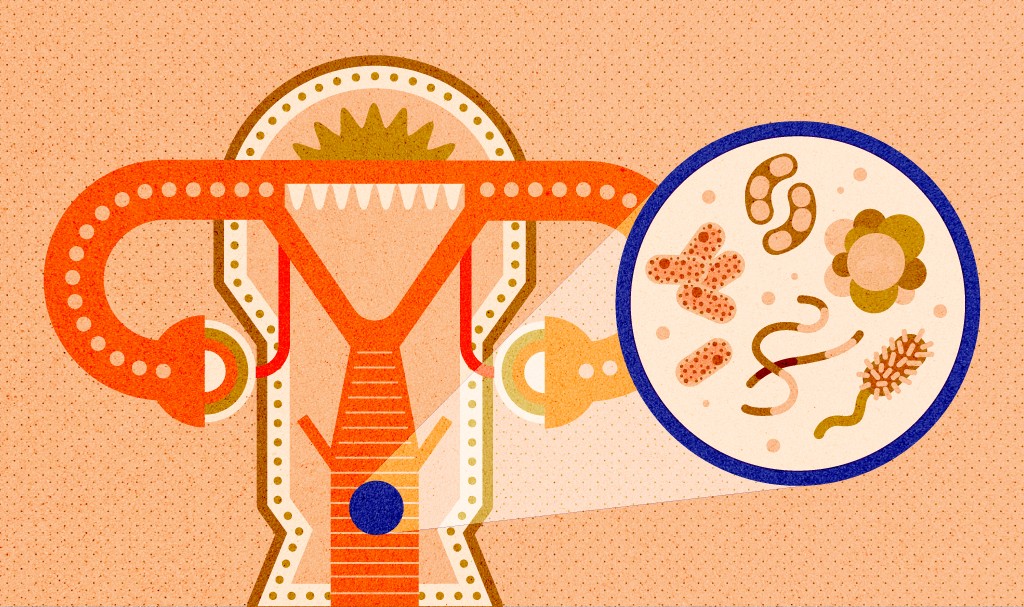AsianScientist (Apr. 02, 2025) – Once believed to be a sterile environment for fetal growth, we now know that the uterus has its own diverse microbiome. Next-generation sequencing has allowed researchers to identify bacterial populations in the female reproductive tract and explore how the microbiome affects fertility and disease.
In a review published in Reproductive and Developmental Medicine, highlights the impact of the reproductive microbiome on pregnancy. Researchers found that a Lactobacillus-dominated uterine environment can improve pregnancy outcomes. They also highlighted links between the microbiome in the female reproductive tract and uterine diseases like chronic endometritis and endometriosis.
Lactobacilli are the predominant bacterial genus in vaginal flora of women of reproductive age. The endometrium, or uterine lining, has a similar microbiome, usually dominated by Lactobacillus species. They produce lactic acid, maintaining a low pH of 3.5 – 4.5 and limiting the growth of harmful bacteria like E. coli.
Researchers found that Lactobacillus-dominance (LD) in the endometrial microbiome is associated with better pregnancy outcomes. This correlation also extended to assisted pregnancies – infertile IVF patients with Lactobacillus-dominated reproductive microbiomes had better chances of embryo implantation, pregnancy, and live birthrates, while patients with less Lactobacillus had poorer pregnancy outcomes.
Other beneficial groups of bacteria in the reproductive microbiome like Prevotella, Bifidobacterium, and Enterobacter can produce short-chain fatty acids (SCFAs) that regulate immune responses during embryo implantation and gynaecological diseases. Conditions like endometriosis, chronic endometritis, and endometrial polyps have also been linked to a disrupted reproductive microbiome.
Studies on IVF patients discovered that the presence of certain bacteria, such as Gardnerella vaginalis and E. coli indicate lower IVF success rates. Further research into ideal reproductive microbiome compositions could help improve fertility treatment outcomes.
“A disturbed microbiome may create a hostile environment for embryo implantation” said Kai-Fai Lee,associate professor in the Department of Obstetrics and Gynaecology at the University of Hong Kong, and corresponding author of the study. “This could explain why some women struggle with unexplained infertility despite having no obvious reproductive issues.”
The researchers suggest that better fertility treatment outcomes could be achieved by considering the reproductive microbiome as part of the treatment process. They also noted that the hormonal stimulation used as part of IVF could affect the microbiome and result in a poor environment for embryo implantation.
Prebiotics and probiotics might benefit infertile patients, helping them to develop a Lactobacillus-dominated microbiome. The researchers speculate that in the future, microbiota transplants from healthy individuals to infertile patients might be possible.
These findings emphasise the importance of a balanced reproductive microbiome in pregnancy outcomes, fertility treatments, and diseases. Further research is needed to identify beneficial microbiota and determine the exact mechanisms by which they improve pregnancy outcomes. Personalised treatments to restore healthy reproductive microbiomes could improve the results of fertility treatments, especially for those with repeated IVF failures.
—
Source: The University of Hong Kong ; Image: Shelly Liew/ Asian Scientist Magazine
This article can be found at Impact of microbiota on female fertility and gynecological problems
Disclaimer: This article does not necessarily reflect the views of AsianScientist or its staff.


